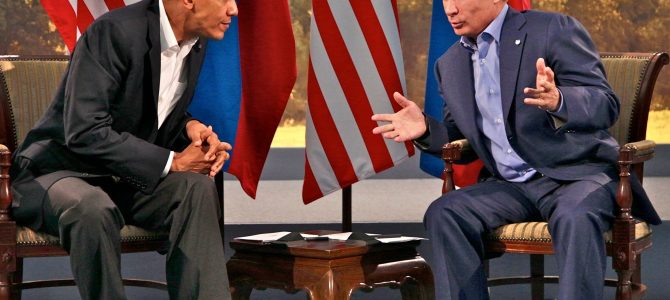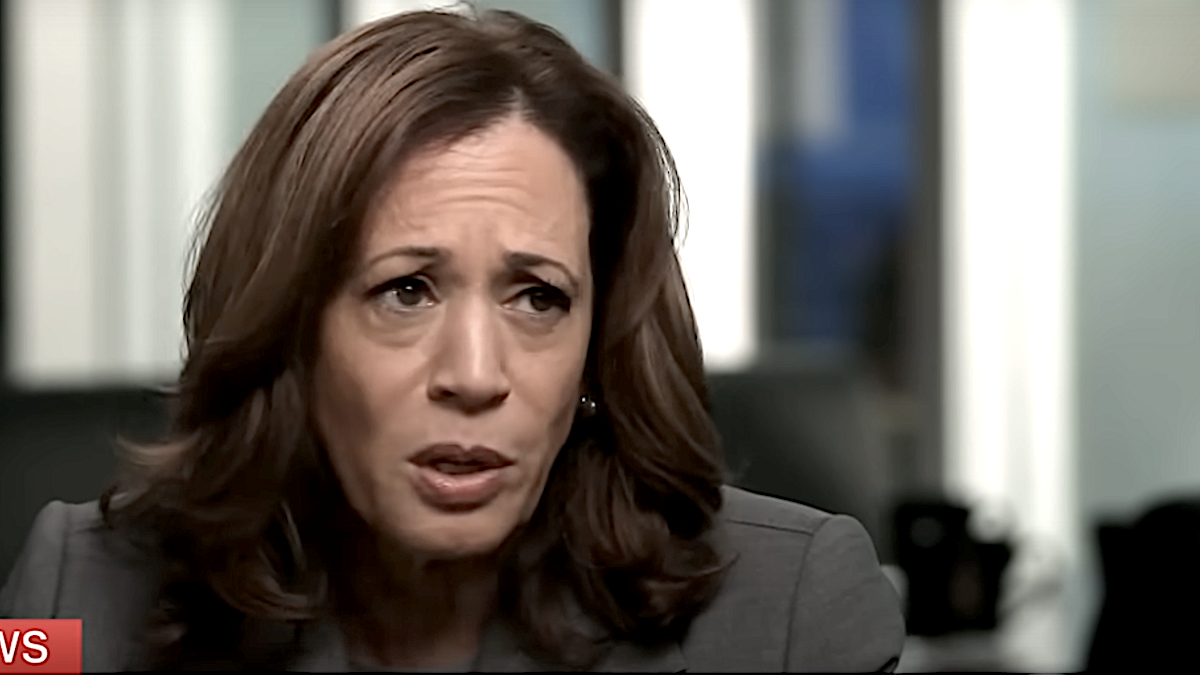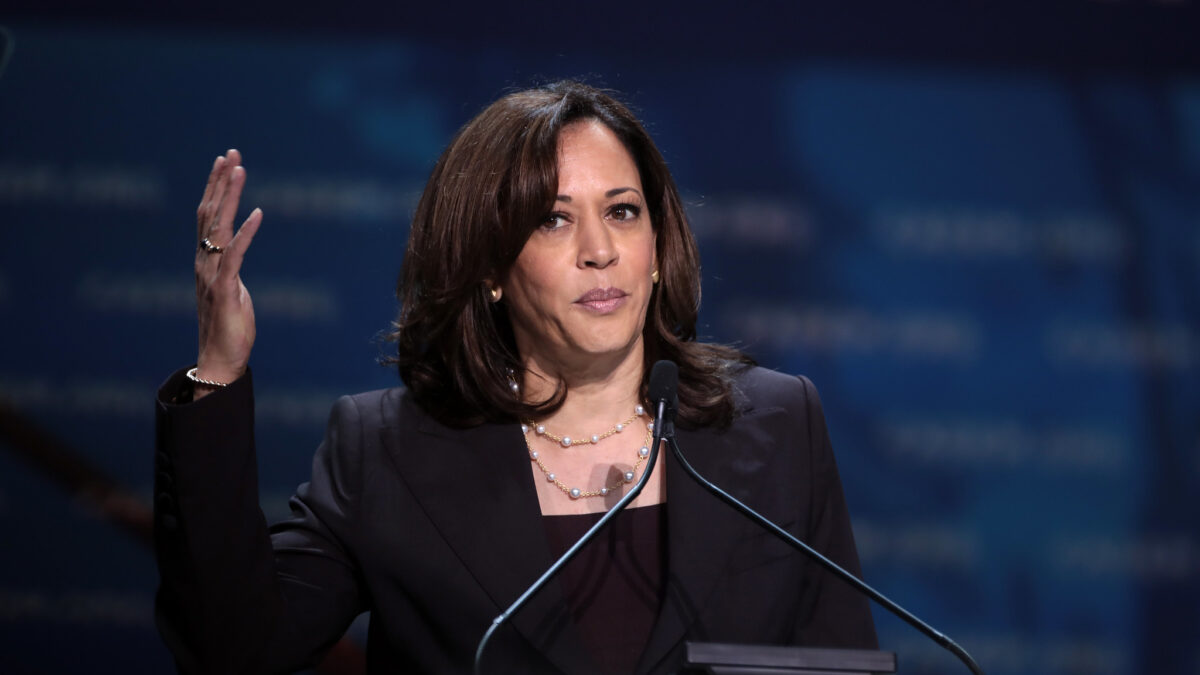
Here are two positions an intellectually honest person can simultaneously hold.
First, that Russian President Vladimir Putin is an authoritarian who, though no Stalin, still subverts human rights, and is generally antagonistic to the idealistic aims of the United States . When Republicans cozy up to this sort of person, as Donald Trump has done, they undermine the stated beliefs and values of conservatism.
Second, though there’s little doubt he wishes he could, Russian President Vladimir Putin did not “hack” the American election. In fact, there’s no evidence that the Russians had anything to do with Trump’s victory.
Now, I understand why so many on the Left want to force Republicans to choose between these two statements. They’d like to delegitimize the democratic validity of Trump’s presidency (in much the same way they did with George W. Bush) and smear those who don’t join them in this endeavor as unpatriotic Putin-defending lackeys. Considering their own past, and the president’s own accommodating attitude towards the Russians (and Cubans, Iranians, Fatah/Hamas, and other illiberal regimes) this seems an uphill battle, but it’s not unprecedented.
Many in the media, though, which has spent considerable time lamenting its deteriorating influence and the rise of “fake news,” also decided to start the new year internalizing a partisan-driven fantasy about Russians electing the president, giving us incessant coverage, deceptive headlines, and misleading stories. The number of times I’ve seen a reputable news organization use terms like “election hacking” is now incalculable. It is a lie. Every time.
US officials say newly identified “digital fingerprints” indicate Moscow was behind election hacking https://t.co/5egPuMC0Mh pic.twitter.com/ru7e7iv8sD
— CNN (@CNN) January 3, 2017
By “election hacking,” reporters and editors mean there might be evidence Russians had successfully phished a Democratic operative named “John Podesta.” Although we should thoroughly investigate foreigners who illegally access American emails, this is not tantamount to infiltrating an election or undermining its legitimacy.
Take the The Washington Post, which last month ran a flimsy piece purporting that the “flood of ‘fake news’ this election season got support from a sophisticated Russian propaganda campaign.” Last week, it reported that a Russian-backed computer hacking operation had been found inside the systems of a Vermont utility company. This could mean the Russians could have penetrated the entire U.S. power grid, which is genuinely scary stuff. Congressmen were demanding investigations, etc. A few days later, The Post, after much effort in saving the piece, had to finally admit the authorities “say there is no indication of that [hacking] so far.”
To say there is no indication that Russia tried to infiltrate the grid “so far” almost reads like someone is hoping the story might one day turn out to be true. There is also no indication that the Russians picked a US president – so far. In any event, everyone makes mistakes. But it’s difficult to imagine these sorts of pieces, hampered with numerous problems from the start, didn’t have something to do with partisan narratives about Russian influence infecting newsrooms. These kinds of pieces only weaken the impact of genuine foreign-hacking stories.
Many in the left-wing punditry have already taken to speaking about stolen 2016 election. “The NSA Chief Says Russia Hacked the 2016 Election,” says David Corn. New York magazine’s Jonathan Chait asserted — in a single paragraph — that not only was there “evidence that Russian intelligence carried out a successful plan to pick the government of the United States” but that it was “probable that the hacks swung enough votes to decide a very tight race” and that the latter could not be “proven.”
In politics, proving something isn’t nearly as important as feeling it. So it’s not surprising that last week, Economist/YouGov found that 52 percent of Democrats now believe Russia “tampered with vote tallies” — not that it leaked real-life emails to the public, but that it altered the outcome of the ballots in a presidential election. There is no proof of this happening or that it was even attempted. If we’re to believe YouGov, Democrats are more likely to believe the Russians installed Trump into the presidency than Republicans are to have ever believed Barack Obama was a Muslim.
52% of Democrats believe Russia tampered with vote tallies to get Trump elected (per Economist/YouGov poll).
There’s no evidence for this. pic.twitter.com/LSFl3GuAAW
— Sahil Kapur (@sahilkapur) December 31, 2016
Are the Russians also the authors of GOP’s Senate, House, and gubernatorial gains over the past six years? Isn’t it more plausible that GOP wins, including Trump’s, are the result of the failures of Obamacare and Hillary Clinton and other discontent rather than Russian hackers? Whatever the case, Obama decided to retaliate against alleged Russian infiltration of the 2016 election, by sanctioning four Russians and five Russian entities with a statement that strongly hints they helped Trump win. The administration also ordered 35 Russian diplomats to leave the country and two Russian compounds to be shuttered.
This is A-OK by me. Eject all spies! But let’s remember, not even the administration claims that Russians at those compounds were involved in supposed hacking the election. And if Russia had this sort of power, running these sorts of top-notch operations during his watch, why did the president wait until after Democrats lost an election to do something about it?
It’s unsurprising that losers of an election would attempt to minimize its validity. It happens all the time. But for the same people who were lamenting our deteriorating trust in democratic institutions — all the rage not long ago — to now embrace this kind of conspiratorial rhetoric is unprecedented. It’s a lot more damaging than the John Podesta hack. It also undermines genuine concerns about Russian activity. Because Russia is not our friend. (They were not our friends when Dems were mocking Mitt Romney or when Barack Obama was promising them “space.”) Julian Assange is not our friend. And also Russia had nothing to do with the Democrats’ predicament. One can believe all those things.









